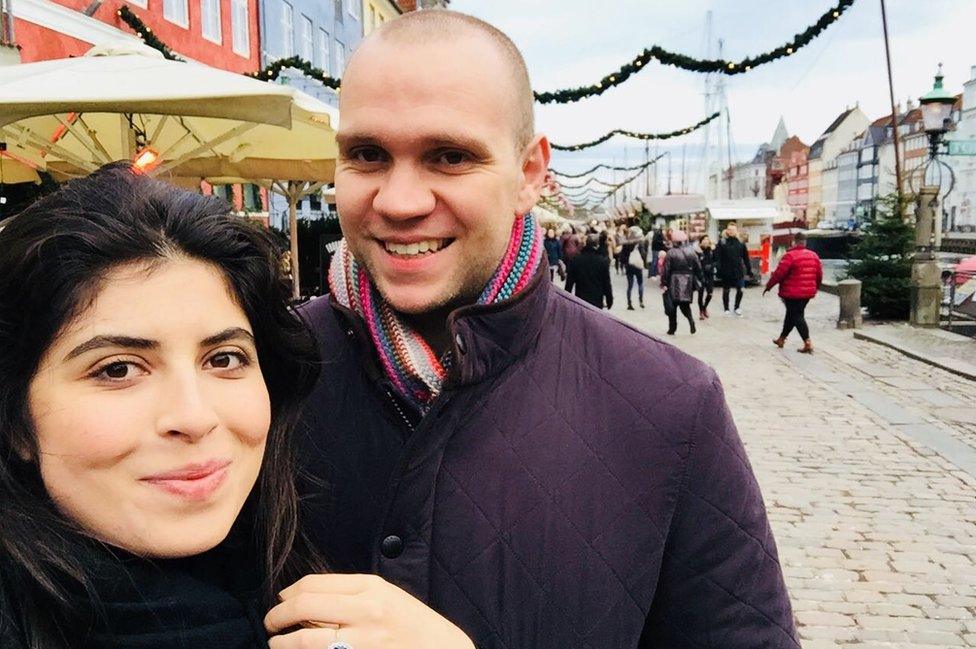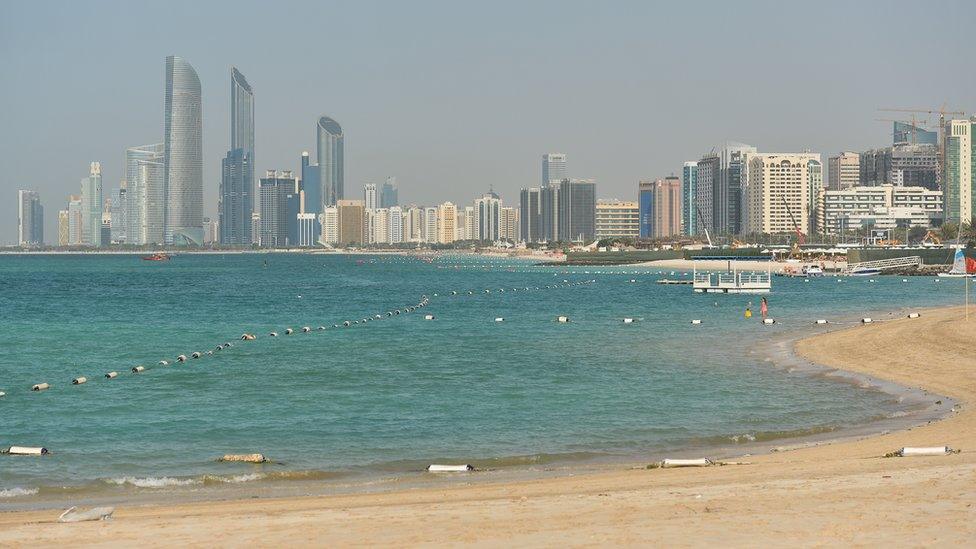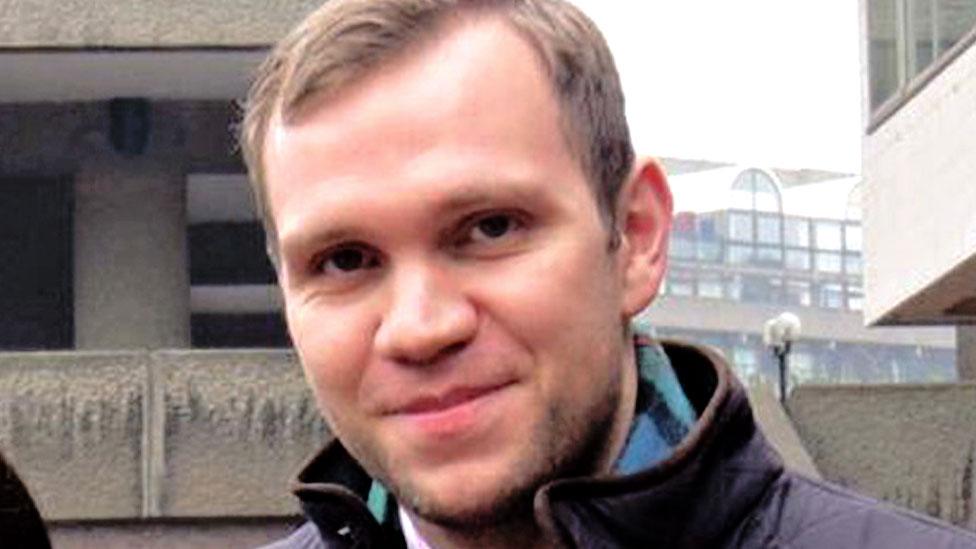Why is the UAE's legal system being criticised?
- Published

Matthew Hedges was detained at Dubai Airport in May
The treatment of a British academic jailed for life in the United Arab Emirates has been widely criticised by British politicians and human rights organisations.
Matthew Hedges was sentenced in a court in Abu Dhabi for spying.
His wife Daniela Tejada says there was no due process and the evidence against him was unfounded.
The UAE Attorney General Dr Hamad Saif Al Shamsi said Mr Hedges had "confessed in detail to his crimes" and was "accorded full rights" with a "fair and transparent trial".
How was Mr Hedges' trial conducted?
In the UAE defendants have the right to a lawyer at the time of trial, says Hiba Zayadin of Human Rights Watch, but not during pre-trial detention.
According to the UAE foreign ministry, external, Mr Hedges accepted the services of a court-appointed lawyer in the first court session on 3 October.
A ministry statement said the case against Mr Hedges was thoroughly investigated by the public prosecutor and "compelling and powerful evidence was presented in court."
The trial on 21 November reportedly lasted just a few minutes. But, according to the foreign ministry, this is common because the court session was only to announce a verdict and deliver a sentence. The court, said the ministry, had met previously.
Mr Hedge's wife, Daniela Tejada, said he had been kept in solitary confinement for weeks without access to legal help.
During that period, his family says he signed what transpired to be a confession in Arabic. Mr Hedges, according to his family, does not speak or read Arabic.
Legal documents in the UAE are required to be in Arabic, says Abdul Khaleq Abdullah, an academic based in the UAE.
"When [these documents are] presented to someone who doesn't speak Arabic, there is a translator who explains it word by word."
"Yes he signed an Arabic document because this is the law of the land here, but he was given the full right to a translation."
Ms Zayadin says these rights are not always observed, and the quality of translation services can vary.

A court in Abu Dhabi handed down the sentence.
The importance of a confession
Ms Zayadin says the charges against Mr Hedges seem to have been largely based on a confession.
She says it is common in Gulf countries for a confession to be the main grounds on which a guilty verdict is delivered, particularly in state security cases such as this.
But these, she says, can be problematic.
Human Rights Watch has documented many allegations in the region of confessions which have been forcibly obtained without the presence of a lawyer, and defendants denied legal counsel or access to family members.
What are the wider criticisms of the UAE's legal system?
When a senior UN official investigated the UAE's judicial system in 2014, she found serious shortcomings.
In her report, Gabriela Knaul - the Special Rapporteur on the Independence of Judges and Lawyers - said she had found reports of "serious breaches of fair trial and due process guarantees."
The report also noted instances where "judges appear to have lacked impartiality and shown bias, especially with regard to non-nationals of the United Arab Emirates."
Difficulties with the use of translators in the UAE have also been noted by the UN. The Special Rapporteur found that translations and interpretation in court cases involving non-Arabic speakers, required by law, "were not always provided in practice, or that their quality was poor."
Radha Stirling from Detained in Dubai, an organisation which has provided representation for foreign nationals in the UAE, says signing a confession without a translator in the UAE is "standard practice."
Accusations alone, with "zero evidence", can be enough to secure prosecution, she says.
In response to the criticisms levelled at the UAE, the justice ministry said the constitution guaranteed an independent judiciary and that the country was committed to strengthening human rights.



- Published21 November 2018
